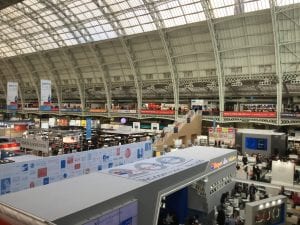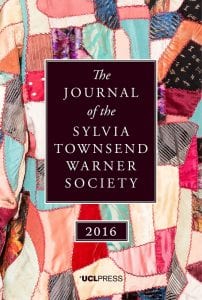An open letter from the Editor-in-Chief of UCL Open: Environment
By Alison Fox, on 31 January 2019
Today’s guest post is by Prof Dan Osborn, Editor-in-Chief of UCL Open: Environment, which opens for submissions today. It originally appeared here.
UCL Open: Environment – why are we doing this?
Very shortly humanity needs to begin solving the planetary problems caused by humanity’s activities and moving towards making the world a better place for all its citizens. 10 billion people can’t be provided with the energy, water and food they need without such an effort.
For example, by 2020 or soon thereafter, emissions of greenhouse gases must peak if the impacts of climate change are to be kept in reasonable check. Failure to successfully tackle problems like climate change or to deal with inequalities that mean that there is plenty, or even over-supply, in one place and scarcity in another could lead to social, economic and environmental problems that will put sustainable development out of reach.
Tackling issues like climate change is a fundamentally multidisciplinary exercise. To succeed it will need long-term observation and understanding of planetary processes, modelling and projections into the future, risk assessment and engineering solutions (including biological engineering) that will have to include the public acceptability of new technologies built in from the start. In all likelihood it will need to invent new financial and economic approaches to help those communities and nations that find themselves cast in the role of climate victims (e.g. those living in vulnerable communities in coastal areas). It might even, if we have to resort to geoengineering the planet or engineering plants to enhance the rate of photosynthesis, be forced to ask what the right level of greenhouse gases in the atmosphere really is. That would pose legal and ethical and moral questions that there would not be easy agreement on. Just think how difficult it has been to get nations to agree on just emission reductions and ways of measuring that though the processes of the UN Framework Convention on Climate Change.
No one discipline is going to tackle this kind of problem. Neither is any one discipline going to make the world a better place. And making the world a better place is an aim that it is too easy to lose sight of when all around there are problems that are so pressing. It is an aim that the academic community must not forget or, by default, leave solely in the hands of the global economy or global and national politics.
The knowledge and evidential material produced by the endeavour of academic institutions worldwide has a vital role to play in this process. Academic endeavour alone will not find the solutions that are needed but it can provide the knowledge and evidence that people need in order to make decisions and choices that will affect everybody. These decisions and choices cannot be based solely on what people believe to be the case; neither can they be based on or false information that has been reinforced through social media processes. Neither are they likely to be achieved in the current global political and economic climate if academia stands back from the dialogue. Of course once people have the knowledge they need to know how they can act and they need to feel empowered to do so and what benefits will result.
UCL Open: Environment aims to publish material relevant to making the world a better place and tackling the planetary problems brought about by human activity. It will not just publish academic papers but will engage in the dialogue about what we as a species do next. It will engage on the basis of knowledge and evidence. It will not seek to make people’s choices or decision’s for them but it hopes to become a source of respected information and a forum for discourse. It will try to publish material relevant to people’s lives as they live them in their communities as often as possible. It will invite input from decision-makers and policy analysts and is open to the idea that research plans and programmes could use the journal to publish evaluations of progress measured against original aims and objectives as we need some way of moving multi-disciplinary efforts forward and those kinds of evaluations are one way of doing this.
UCL Open: Environment will have a distinctive approach to accepting articles. There will be a two-stage processes. First, submitted articles will be considered by members of the editorial team and if within the scope of the journal and compliant with the journal’s policies then the article will move to a pre-print server. This is not publication in the journal. This will merely open the article to comment by referees. If an article on the pre-print server is thought suitable by referees then the article will be considered further by the editorial board and the presumption is that such an article will then be formally published in the journal and assigned page numbers. It is hoped that papers will be multidisciplinary in nature and that the double jeopardy that has haunted this area of endeavour for many decades can be largely avoided. Only submissions of good quality and well balanced articles and considered refereeing will make that possible.
I hope you can join me in wishing UCL Open: Environment to succeed in what it is setting out to do, in short:
- Help to make the world a better place;
- Publish knowledge and evidence needed to tackle the planetary problems caused by human activity;
- Encourage the use of evidence in making decisions at every level;
- Facilitate dialogue that engages people in their communities in what kind of world they would like to see.
Prof Dan Osborn
Editor-in-Chief, UCL Open: Environment
 Close
Close





